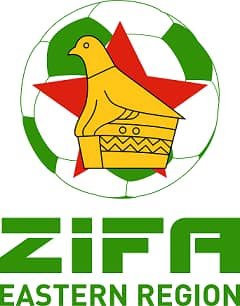…as
Una Una get $7 000 deduction for late affiliation
Clayton
Shereni
Recent
weeks have seen a major tussle between Division One clubs, the elite league and
Zimbabwe Football Association (Zifa) over the currency in which the US$1.8
million Covid-19 bailout package should be distributed amid transparency
concerns.
Zifa,
however, stuck to their game plan and distributed the funds in the local
currency while clubs continue to lament the move which they described as a
daylight robbery by the ever-controversial local football mother body.
With
all affiliates in the country’s four Division One regions reportedly having
received the funds, the big question still remains whether clubs themselves
will pass the transparency test after Zifa failed the same test dismally.
Instead
of distributing every cent, some of Zifa’s regional offices went on to bring
out many technicalities and declaring that they will deduct their affiliation
fees and fines from indebted poverty-stricken club’s relief packages.
It
is a public secret that a sum of between $65 000 and $85 000 won’t be enough
for cushioning a club due to the increasing inflation but every cent counts and
it must be accounted for at all costs.
Club
Executive members at some clubs have been eagerly waiting for their monies to
reflect in the club’s bank accounts but the unanswered question will always be
there, will the players benefit from all the proceeds?
The
golden rule that no animal is more equal than the other should be seen in
practice and extensive bookkeeping, consultations at executive and player level
should be done.
Zifa
went on to distribute money in local currency to regions without any
consultations, this sparked debate and controversy and clubs mustn’t make the
same mistake because anything for the player without the player is not for the
player, hence the player being the major target of this relief package should
be consulted.
Contacted
for comment on how they are going to disburse their allocation, Bikita Minerals
football club (FC) club chairperson, Mike Mushava said his club had received
$85 000 from the region and they are yet to give it to their players.
“We
received a total of $85 000 but we are still to decide how the boys will be
given their money. Soon we will start consultations and do the process smoothly,”
said Mushava.
However,
the case is different for Masvingo United who have received only $78 000
instead of the allocated $85 000 after $7 000 was deducted as a penalty for
late payment of affiliation fee since the club failed to affiliate in time and
was bailed out by Masvingo City Council on the eleventh hour.
This
was confirmed by Una Una chairperson, Hubert Fidze who said they were told that
they were deducted of $7 000 as a fine since the region had to redo the fixture
since Una Una was not featuring on the initial fixture and also revealed that
they are yet to start sharing the money.
“The
region fined us $7 000 that’s why we received $78 000 instead of the supposed
$85 000 because they were fining us for late affiliation. They said that they
had to do a new fixture because of us since we paid affiliation late.
“So
far we haven’t done the disbursement but what I’m sure of is that the players
will get a huge chunk of our own allocation then some sections like
administration will get their own small portion. We will be consulting our
stakeholders so that we do things the right way,” said Fidze.
Eastern
Region vice chairperson, Wisdom Simba, confirmed that they had finished giving
clubs their allocations also explained why Una Una had been fined.
“After
the meeting, we successfully distributed $85 000 to every club in the region
but for Una Una we fined them for affiliating late after we were done with
fixtures and other clubs were done preparing for the season,” said Simba.
With
Zifa regional leaderships now partially out of the radar, club executives in
the four regions are now under scrutiny on how transparent they will be with
the money after they made noise over the allocation.
Although
the money will not sustain for a long time, clubs will have to prioritise
player welfare ahead of everything else.
Zimbabwean
local footballers have been greatly affected with the lockdown since their
paymasters greatly depend on gate takings and with action on halt, it is
difficult for clubs to stay afloat and cater for player needs.

